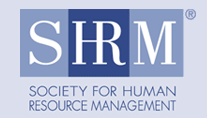Artificial Intelligence and Employment Discrimination Law
In this presentation, Anthony May examines the implications of artificial intelligence (AI) in employment as it pertains to disability, race, age, and gender discrimination, among other protected classes, in all facets of employment, including in the hiring process and employment productivity evaluations. He also discusses the DOJ's and EEOC's guidelines to prevent discrimination through an employer's use of AI and other emergent technologies and measures taken to enforce compliance with federal anti-discrimination laws.
Learning Objectives:
- Define artificial intelligence and provide examples of how AI is used in the workplace.
- Identify several potential discriminatory uses of AI to hire, screen, and evaluate employees by examining individuals' rights protected under relevant federal anti-discrimination laws.
- Understand some of the current legal efforts to curtail such discrimination at the global, federal, state, and local levels - as well as several lawsuits involving AI discriminating against protected classes.
- Understand best practices for both employers and employees to ensure an employee's rights are not violated when using AI.
Anthony J. May

Anthony is a partner at Brown, Goldstein & Levy, a nationally recognized civil rights firm in Baltimore/Washington D.C. Anthony represents clients in complex litigation matters, including assisting employees with disabilities in obtaining accommodations in the workplace, wrongful termination of benefits based on sexual orientation, and commercial litigation disputes. Prior to joining the firm, Anthony was the Francis D. Murnaghan, Jr. Appellate Advocacy Fellow at The Baltimore Public Justice Center, where he represented indigent clients on anti-poverty and civil rights matters in federal and state appellate courts. He is a 2015 graduate of the University of Maryland Carey School of Law.
Find Sessions by Day
Find Sessions by Speaker
Find Sessions by Topic
- Select Track
- Attendee Services
- Compensation & Benefits
- Concurrent Sessions
- Engagement & Retention
- HR & Talent Acquisition Strategic Planning
- HR Technology and Data Analytics
- Inclusion & Diversity
- Leadership & Development
- Sourcing and Recruiting
- Talent Selection
Find Sessions by Credit Type
- Select Credit Type
Find Sessions by Competency
- Select Competency
- Business (Behavioral)
- Interpersonal (Behavioral)
- Leadership (Behavioral)
- Organization (Technical)
- People (Technical)
- Workplace (Technical)
Find Sessions by Intended Audience
- Select Intended Audience
- Early Career
- Executive-level
- Mid-Level
- Senior-Level

